On International Holocaust Remembrance Day, we solemnly reflect on one of history's darkest chapters. Yet, as we delve into the tragic events of October 7, 2023, in Israel, a disturbing question arises: Is history repeating itself in a new but equally horrifying form?
October 7th Events
As we commemorate the victims of the Holocaust, let us turn our attention to a recent event that echoes the past's tragedies: the October 7, 2023 attack in Israel.
October 7, 2023, marked a day of terror as Hamas launched a brutal attack on Israel. This event not only challenged the resilience of Israel and Gaza but also sent shockwaves across the globe, redefining the landscape of modern terrorism and its repercussions.
A Disturbing Aftermath: The Global Rise of Antisemitism
While the immediate aftermath of October 7th redefined terrorism, its ripple effects extended far beyond, leading to a disturbing global phenomenon: a surge in antisemitism.
In the wake of the October 7th Hamas attacks, the world witnessed not a unification against terror, but a startling and disheartening 1,753% leap in global antisemitism. The Anti-Defamation League (ADL) recorded an unprecedented 3,283 antisemitic incidents in the U.S. alone, a staggering 361% increase from the previous year. This period saw the introduction of a new category to track antisemitic incidents at rallies, accounting for 1,317 incidents, a figure impossible to ignore.
Excluding rally-related incidents, there was still a 176% increase in other forms of antisemitism, encompassing harassment, vandalism, and physical assaults. This data paints a bleak picture, with the last three months of reported incidents surpassing those tracked in any year of the last decade, except for 2022. The ADL anticipates that 2023's total incidents will exceed the record totals of 2022, an alarming prospect.
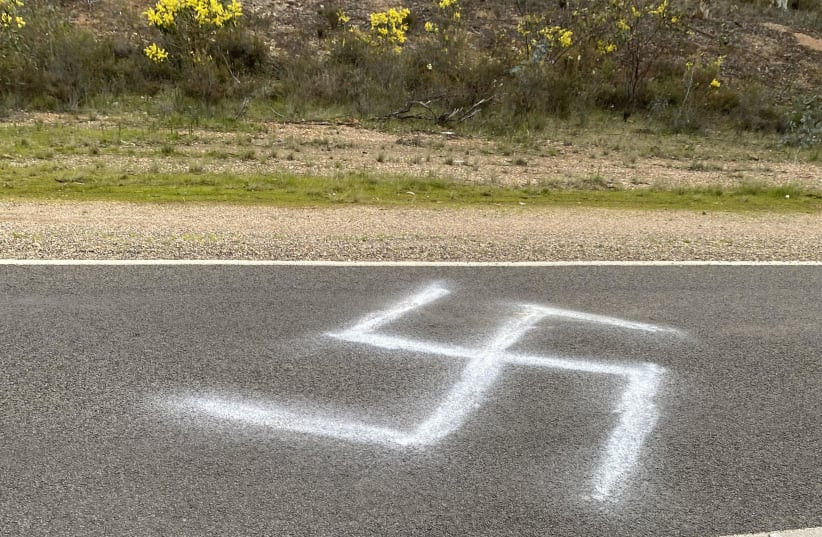
The nature of these incidents is diverse yet uniformly disturbing. Approximately 40% involved verbal or written harassment, alongside 553 incidents of vandalism and 60 physical assaults. A significant rise in fake bomb threats targeting Jewish facilities, with over 400 false bomb threats received, further exacerbates the community's sense of vulnerability.
The Antisemitism Research Center (ARC) of the Combat Anti Semitism Movement (CAM) also reported a dramatic increase in global antisemitic incidents since October 7th, primarily stemming from the far-left. This alarming trend reveals a sinister shift in the global discourse surrounding Israel and Jews, often cloaked in anti-Israel rhetoric.
Jonathan Greenblatt, CEO of the ADL, expressed his grave concern over these developments, stressing the unprecedented threat level and the dramatic increase in incidents. Meanwhile, Sacha Roytman Dratwa, CEO of CAM, highlighted the often-overlooked threat of far-left antisemitism, which is adopting the language and tactics of far-right hate groups. This period of increased hostility and violence against the Jewish community reflects a shocking normalisation of antisemitism in global discourse.
What does the dramatic increase in antisemitism tell us about the state of global empathy and understanding? As we ponder this question, let us examine the chilling parallels between recent events and historical tragedies.
Holocaust 2 - A Disturbing Resemblance
This alarming rise in antisemitism not only reveals contemporary societal issues but also mirrors historical precedents. The parallels between October 7th and the Holocaust are both undeniable and deeply concerning.
The horrors of October 7th bear an unsettling resemblance to the Holocaust, a parallel that cannot be ignored. The term "Shoah," historically used to describe catastrophic events, is again relevant in the context of the October 7th massacre, where the number of casualties tragically mirrored those of entire Jewish communities in North Africa during the Holocaust.
The objective of the perpetrators is a common thread. Like the Nazis, Hamas and other terror groups have expressed a clear intent to annihilate the Jewish people. This shared genocidal goal is evident in their actions and propaganda.
The global response to the events also mirrors past attitudes. Just as Nazi symbols and rhetoric found their way into pro-Palestinian demonstrations, today's responses to the conflict often contain disturbing elements of antisemitism. This indicates a worrying trend of historical distortion and hate.
The indoctrination of hate is another parallel. Hamas's strategies of instilling anti-Jewish sentiments from a young age bear a striking resemblance to the Nazi education system. Additionally, the tactics employed during the October 7th attacks, including the forced removal of Jews from hiding, are reminiscent of Nazi operations in the Warsaw Ghetto.
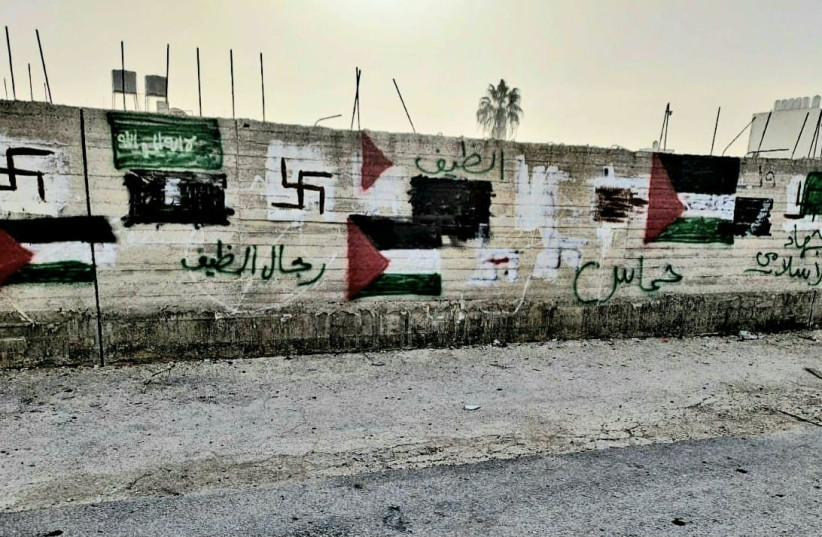
Lastly, the theme of looting and plunder echoes the Holocaust, where genocide was coupled with the largest robbery in history. The actions of Hamas during the October 7th attack mirrored this aspect of the Holocaust, further solidifying the comparison.
As we reflect on the chilling similarities between the Holocaust and the October 7th massacre, the firsthand accounts of those who witnessed these events add a profound depth to our understanding. The testimonials from ZAKA members and Holocaust survivors bridge the past and the present, highlighting the recurring themes of antisemitism, brutality, and the resilience of the Jewish community.
Testimonies from Holocaust Survivors:
The massacre on October 7th shocked us all profoundly, but it is chilling to imagine how Holocaust survivors feel, witnessing the most horrifying pogrom since World War II.
Several Holocaust survivors gathered at the Warm House for Holocaust Survivors in Haifa, sharing their difficult days that have reawakened the trauma they have carried all their lives. Concurrently, they called on all Holocaust survivors worldwide to join their call for the clear demand for the return of all hostages taken in Gaza.
"It took me many long years to start believing and hoping that the Holocaust we went through would not return. And now, with deep sorrow and a heavy, aching heart, I admit that I was wrong. Not only has the Holocaust returned, but it is even more cruel than imaginable," said 91-year-old Naomi Lichtehuiz.
"My feelings are terrible. I never thought that in my life I would experience again the sights and disasters like we saw in the Holocaust. We have captives and we do not know where they are, and it reminds me of my time in the ghetto when we were crowded in one place with daily danger, not knowing what would happen to us," said Naomi, adding: "What they did on October 7th, it's worse than the Nazis."
Aliza Marmelshtein, 93, who grew up in Poland and survived the Lodz Ghetto, said: "I survived the Holocaust and thought to myself that it was the end of all evil in the world. I never imagined I would hear and see again that there are things worse than what the Nazis did. I have seen many wars and countless inhuman horrors that people have done, but I never imagined behaviour like Hamas's in my worst nightmares."
91-year-old Rita Barkovitz, who survived the death march from Romania and immigrated to Israel after the war, said: "What kind of heart do people have to murder small children, to take them captive. How does such a thing happen? We all here, in the Warm House, cry every day."
"When I hear a siren, I think I am back in Auschwitz. I shake and cry. I am afraid to open the door and fear that, God forbid, a terrorist will come," she added.
Shimon Sabag, founder and CEO of the Warm House for Holocaust Survivors, said: "They are going through difficult days. The harsh events they were exposed to have taken them back. Here at the organisation, we do everything to wrap them in warmth and love, helping and assisting. Here with us, they receive and feel more security and protection. The entire team stands by their side, and of course, joins the call to bring all the captives home."
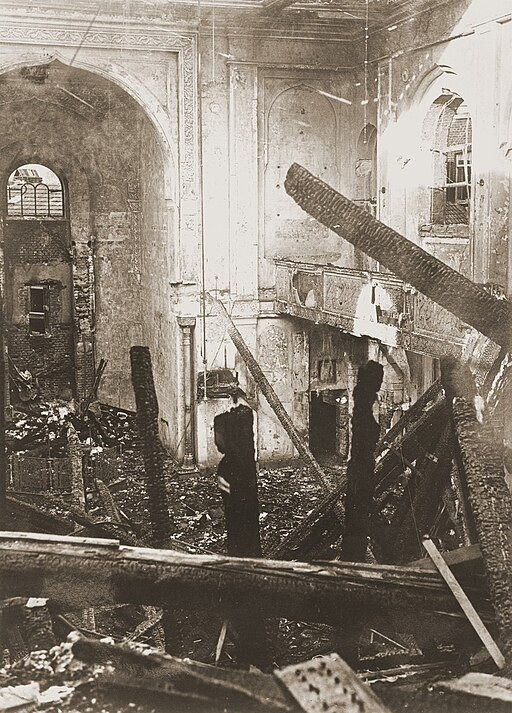
View of the old synagogue in Aachen after its destruction during Kristallnacht (public domain image)
The real witnesses of horror
In the harrowing aftermath of the October 7th attack, ZAKA’s CEO Dubi Weissenstern revealed the staggering scale of the tragedy and the organization's immense challenge in responding effectively. "Two hours since my arrival... I'm missing basic equipment. Paper to wipe up the blood. My two warehouses have been emptied," Dubi recounted. This statement not only reflects the enormity of the attack but also the urgent need for resources as ZAKA confronted an unprecedented number of casualties.
Faced with a disaster of this magnitude, ZAKA's volunteers found themselves quickly depleting supplies that would normally last for months, if not years. The situation was dire, with equipment worth several millions of dollars being utilized in just a few hours. This included essential items such as body bags, protective gear, and medical supplies – all crucial for the dignified handling and identification of the deceased.
Despite the overwhelming circumstances, the resilience and dedication of ZAKA's team shone through. They worked tirelessly, often in dangerous conditions, to provide care and respect to the victims. However, it was the remarkable outpouring of support and donations from kind-hearted individuals and communities worldwide that truly made a difference. These generous contributions enabled ZAKA to continue their vital work in the face of such a colossal tragedy, replenishing their depleted resources and ensuring they could carry on with their mission.
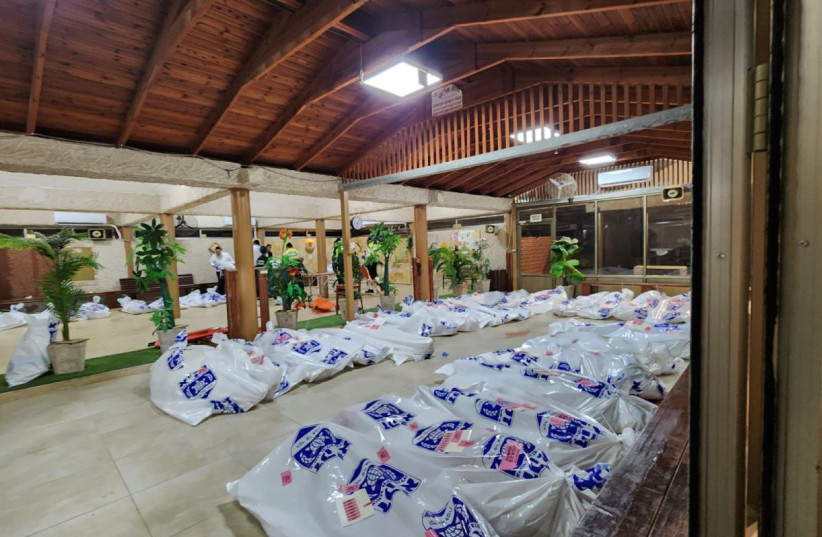
After hearing the poignant testimonials of survivors, we are reminded of the timeless value of selflessness and aid in times of despair. Just as there were brave individuals during WWII who risked everything to help Jews in peril, today we see organisations and individuals embodying that same spirit of courage and compassion. They stand as modern-day beacons of hope, providing critical assistance when it is most needed, much like the unsung heroes of the past.
How can recognizing the parallels between the Holocaust and recent events help us prevent future atrocities? The testimonies of those who have endured both eras offer a unique and powerful perspective.
Normalization of Antisemitism
As survivors grapple with memories of the Holocaust reignited by recent events, society at large faces a different yet related challenge: the normalization of antisemitism in contemporary discourse.
The rise in public antisemitic remarks by figures like Ye and Kyrie Irving, coupled with former President Trump's controversial meetings, signals a worrying trend. The normalization of hate speech and the spread of antisemitic tropes echo the pre-Holocaust era, where influential individuals propagated such views without consequence.
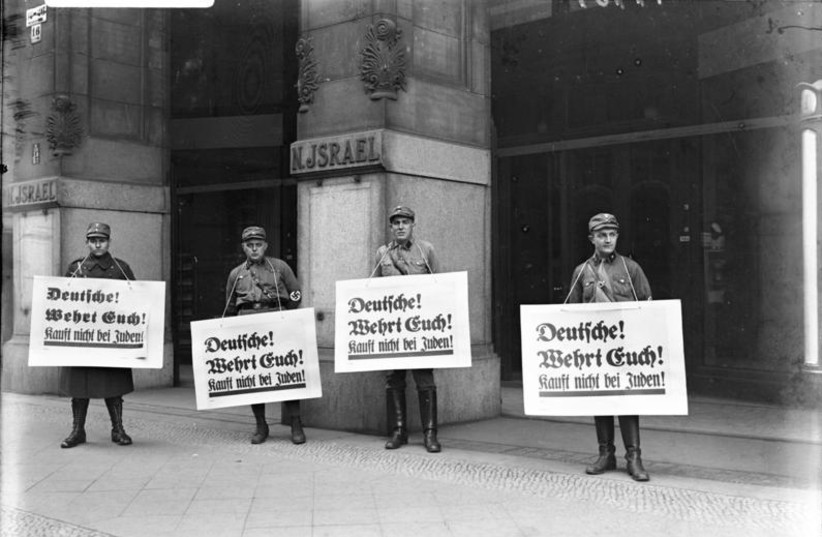
These are members of the SA (Sturmabteilung) holding placards that say: "Germans defend yourselves! Don't buy from Jews." ("Deutsche! Wehrt Euch! Kauft nicht bei Juden!") License
What responsibility do public figures have in shaping societal attitudes towards minority groups, and how can we hold them accountable? As we delve into the personal stories of those affected, we see the tangible impact of such rhetoric.
Hate Breeds Hate: The Dangerous Trend of Denialism in Holocaust and October 7th Massacre
The rise of public antisemitic rhetoric and its normalization pose a stark reminder of history's darkest chapters, leading many to reevaluate their understanding of Holocaust denial and its implications in today's world. This struggle against denial is not just a battle of memory over oblivion but also a fight against the dangerous trend of rewriting history to serve current agendas.
Holocaust denial and distortion remain significant issues, undermining the historical truth and perpetuating antisemitic stereotypes. This denial takes various forms, from negating the established facts of the Nazi genocide to claiming the Holocaust was exaggerated or fabricated for Jewish benefit. However, this disturbing pattern of denial extends beyond the Holocaust, manifesting alarmingly in the wake of the October 7th Hamas massacre.
In the aftermath of October 7th, many expressions of solidarity with the Palestinians have displayed anti-Israel sentiment and support for Hamas, including demonstrations, statements by faculty and student groups, and widespread online misinformation. This includes denialism efforts to cast doubt over the events of October 7th, its perpetrators, their methods, the nature of its victims, and Hamas’ goals.
Denialism is seen in claims that the October 7th events never occurred, that Israel was largely responsible for the massacre, or that acts of rape did not take place. Some even frame Israel’s retaliation against Hamas as unprovoked, while others downplay the severity of Hamas holding hundreds of innocent people as hostages. These false narratives constitute a gaslighting campaign, blurring moral clarity, lauding Hamas, and demonising Israel. These assertions, made by anti-Israel leaders and amplified by activists and social media users, fuel antisemitism and potential attacks on Jews and Israelis worldwide.
Recent examples of this phenomenon include the denial of the October 7th events, accusations against Israel for fabricating evidence, minimizing the scope of the massacre, denying accounts of sexual assault by Hamas, and portraying Hamas as benevolent to its Israeli hostages.
The 80th anniversary of the Holocaust genocide brings new challenges and opportunities to address this distortion. The US Holocaust Memorial Museum's research on Holocaust distortion aims to stimulate conversations and actions to address these distortions. However, the problem extends beyond historical academia, with political leaders like Syrian President Bashar Assad denying the Holocaust and spreading false narratives.
This distortion of history is not just an academic concern but has real-world implications. A poll by the Economist/YouGov revealed that 20% of young Americans aged 18-29 believe the Holocaust is a myth, indicating a concerning gap in education and awareness. The rise in Holocaust denial and distortion, paralleled by denialism of the October 7th massacre, highlights the urgent need for continued vigilance and education. As we remember the Holocaust and its lessons, we must also confront and challenge the distortions and denials that threaten to undermine our collective memory and the lessons we have learned from these dark chapters in history.
How can we as a global community confront and counteract the dangerous spread of historical distortions and falsehoods? Understanding the role of education and awareness is crucial in this endeavor, ensuring that the truth prevails and that such atrocities are neither forgotten nor repeated.
Conclusion
As we reflect on the lessons of history and the echoes of the Holocaust in recent events, we see the enduring need for kindness and support in the face of adversity.
The courage and compassion of those who helped Jews during WWII, often at great personal risk, remind us that every act of support, no matter how small, can leave an indelible mark on humanity. In today's world, this spirit of assistance continues to be crucial. The recent events have witnessed thousands of selfless acts of kindness by Israelis, demonstrating how crucial and impactful such support can be.
These acts, ranging from providing shelter to offering emotional support, exemplify the strength and resilience of a community united in compassion. As we strive for a future built on empathy and understanding, let us embrace the power of collective action and the difference each of us can make. It's in these moments of support and solidarity that we find our shared humanity and the strength to build a more compassionate world.
This article was written in cooperation with ZAKA Search and Rescue
